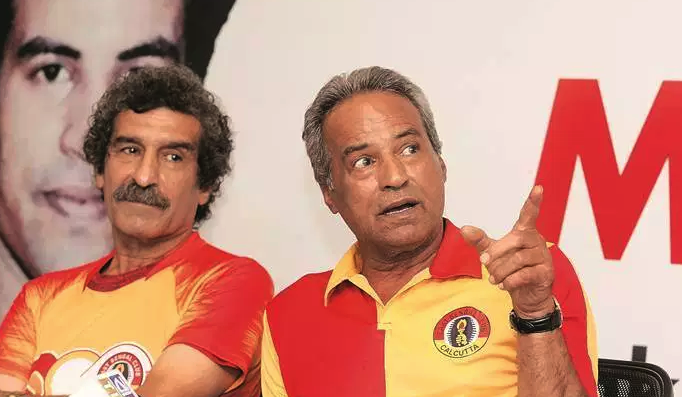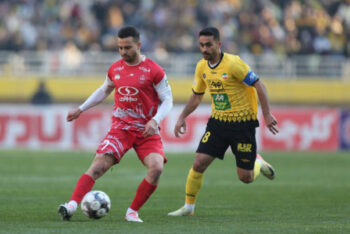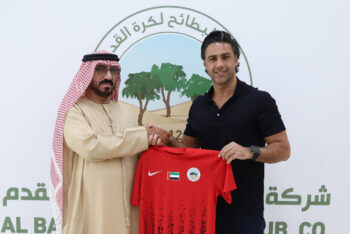The Prince of Persia returns: Majid Bishkar comes back to rekindle maidan memories

Indian Express – KOLKATA, Calcutta was rechristened as Kolkata. Football took a backseat in the city after the arrival of Sourav Ganguly. But Majid somehow retained his charm.
Majid Bishkar was a little perplexed. Close to 200 East Bengal fans were waiting for him at the Kolkata airport arrival lounge when he touched down on Sunday. A little over 24 hours later, when the former Iranian footballer came to the East Bengal tent to be part of the club’s ongoing centenary celebrations, a gathering of 150 supporters greeted him.
“I was thinking on the flight who would come to receive me at the airport, may be one or two officials. But I was astonished to see so many East Bengal supporters,” Majid mused. His skills on the football field had left such an indelible mark on the minds of the lovers of the Beautiful Game.
The 63-year-old looked fit. The red-and-gold shirt he was wearing sat nicely on him. It had to be, because it was the attire in which Majid made magic.
“I always recollect the nice time I had here. I still remember the goal I scored in the Rovers Cup final against Mohammedan Sporting. But (back in Iran) I didn’t have that much connection of getting news (from India),” he said.
Majid relived the horror of August 16, 1980, when 16 football fans died in a riot and stampede at Eden Gardens during a Mohun Bagan-East Bengal game.
“On the field, I concentrated only on my performance. After I returned home, a supporter told me about the tragedy. I was shocked.”
But football is only one aspect of the fascinating story of Majid’s life.
Thirty-two years ago, when he left Kolkata, Majid was a wreck. He was bankrupt. Depression had set in. At the peak of his career, he had got into a relationship with a former India women’s basketball player, which ended in heartbreak. Majid hit the bottle and took to drugs. Indiscipline brought his premature football demise.
A lot of water has flown under the Howrah Bridge since. Calcutta was rechristened as Kolkata. Football took a backseat in the city after the arrival of Sourav Ganguly. But Majid somehow retained his charm.
The former attacking midfielder – a forward in a 4-2-4 formation – had a chequered career. From 1980 to 1982, when he was playing for East Bengal before moving to Mohammedan Sporting, he was the ‘prince charming’ of the Kolkata maidan. Then, he faded away. Foreigners like Chima Okorie and Jose Ramirez Barreto had far better and more consistent careers. Majid, though, cast a spell even on aficionados outside football.
“That’s because the football Majid played… Those who watched him play will never forget his wizardry with the ball. He was in the Iranian squad for the 1978 World Cup. And when he came here, Majid became our tenuous link to world-class football. He remains the best foreign footballer ever to ply his trade in India; an absolute match-winner,” former India Davis Cup captain and coach Jaidip Mukerjea told The Indian Express.
In 1980, star players had left East Bengal en masse. The depleted side still went on to win the Federation Cup and Majid was the reason. “He was probably the first proper No. 10 in Indian football. We used to play in a 4-2-4 formation then. But Majid operated from deep, tweaking it to 4-3-3 and presenting a stiffer challenge to goalkeepers. He was a playmaker who could score as well. But on most occasions, he fed his friend and compatriot Jamshid Nassiri, a centre-forward, to deadly effect,” former India goalie Bhaskar Ganguly recounted, adding: “His receiving and first touch was world-class. That did half the job for him. Off the field, he was soft-spoken and down to earth.”
Ganguly lamented Majid’s rapid decline. “Maybe, he missed a mentor here, someone who could have helped him retain his focus on football.”
Majid versus Subrata Bhattacharya was the rivalry of the early 1980s. The former Mohun Bagan centre-half was one defender whom the Iranian artist found a little difficult to crack.
“Majid’s football was cerebral and you had to use your football intelligence to counter him. The approach against the likes of Chima and Emeka Ezeugo was different. Against Majid, you could hardly afford to give him space. Going for the final tackle early was never an option against him. Rather, it was about taking him to a position where his options became limited. Of course, he was one of the finest overseas footballers we had in Indian football,” Bhattacharya told this paper.
After going back to Iran, Majid gradually returned to the mainstream. He took up some coaching assignments. “I started training kids there. Then got involved with some retired footballers who used to make teams and play here and there regularly,” he said on Monday, affirming his support to Indian football. “Clubs can contact if they wish to have quality players (from Iran) through me.”




